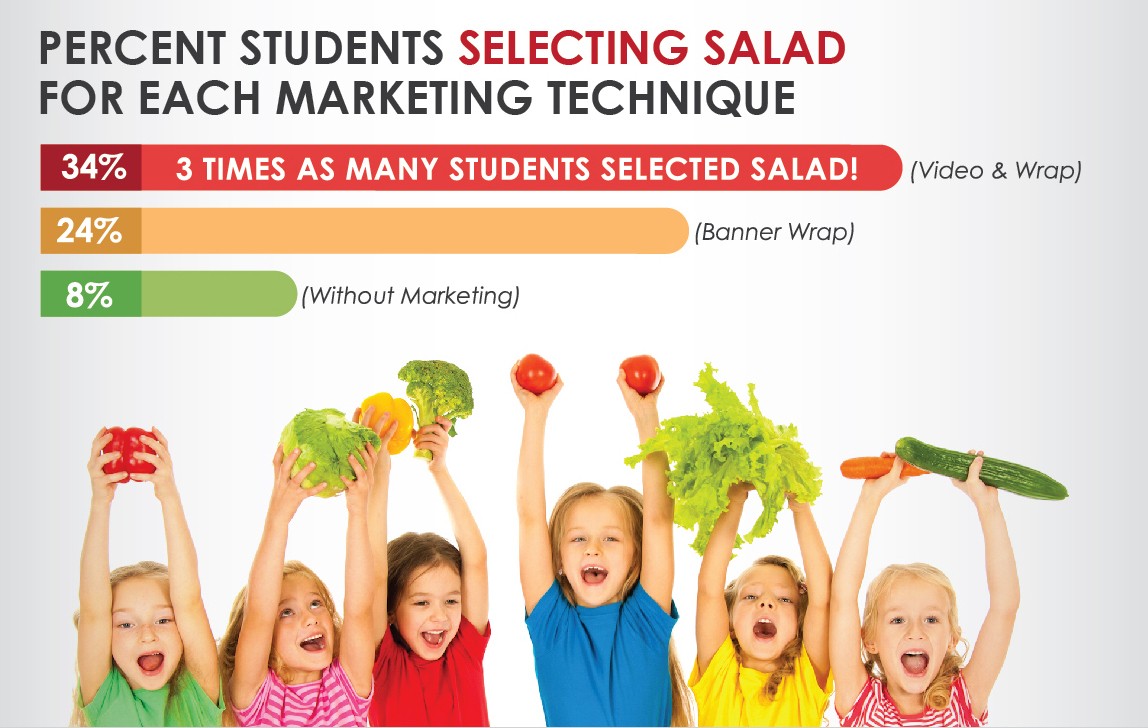Mom always said, “Eat your veggies!” – but these words may mean little to children regularly seeing fun cartoon characters and colorful ads promoting unhealthy foods. It’s important for kids to form healthy habits now, like eating vegetables, for long-term protection against cancer and other chronic diseases.
A recent study suggests that using some of those same marketing techniques could have a powerful impact on helping kids to eat more vegetables.
The study used a group of superhero vegetable characters in ads that were set up in schools. These characters represent a variety of vegetables – such as broccoli, spinach, onions, garlic, tomatoes, eggplant, mushrooms, and zucchini – with the goal to encourage kids to eat many different vegetables.
Attractive banners featuring the veggie characters were placed around and above the salad bar. TVs in the lunchroom showed short videos of the characters giving nutrition education. Floor decals with the veggie characters pointed to the salad bar. Ten urban elementary schools that already had salad bars took part in this study. Each school was placed in one of four groups: banners only, TV only, banners and TV, or no media.
The marketing was highly successful: kids took 3 times as many vegetables and salad servings daily, when considering all media combined. For the salad bar, the percent of students taking veggies increased by 135%. Banners were most effective, alone or with the TV videos. However, using only videos did not influence students’ vegetable choices.

Source: Dr. Brian Wansink and the Cornell Food and Brand Lab
An important limitation of the study is that data for amounts of vegetables actually eaten was not collected. Also, the study was only 4 weeks long – kids may have been influenced more by the fact that these new, superhero characters were in their lunchroom. The excitement may have faded eventually. Regardless, these findings reveal great opportunities for marketing companies and schools to promote nutritious choices to children.
But what does this mean for parents? Continue to encourage your kids to eat vegetables at home and at school. Make some kid-friendly, fruit and veggie-packed meals with AICR’s own healthy-characters, the Super Crew.
This study was funded by the Cornell Food and Brand Lab, the Cornell Center for Behavioral Economics in Child Nutrition Programs, and Founders Farm.
Kaila Schoenberger is an Education & Communication Intern at AICR. She is an MPH/RD candidate from the University of Minnesota School of Public Health. She believes in preventing cancer by encouraging simple ways for people to eat well and be active.





